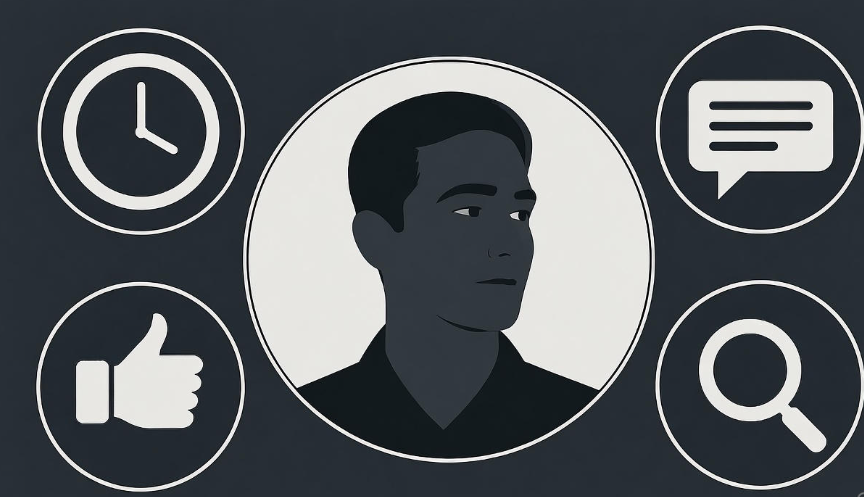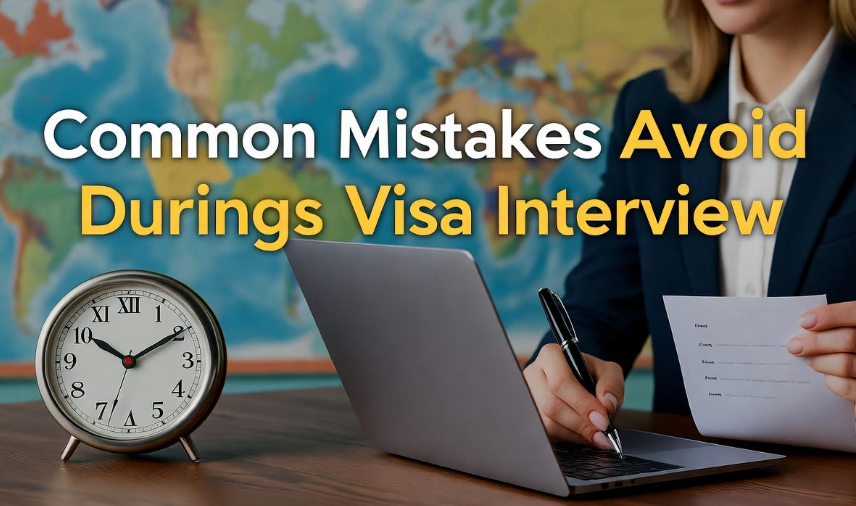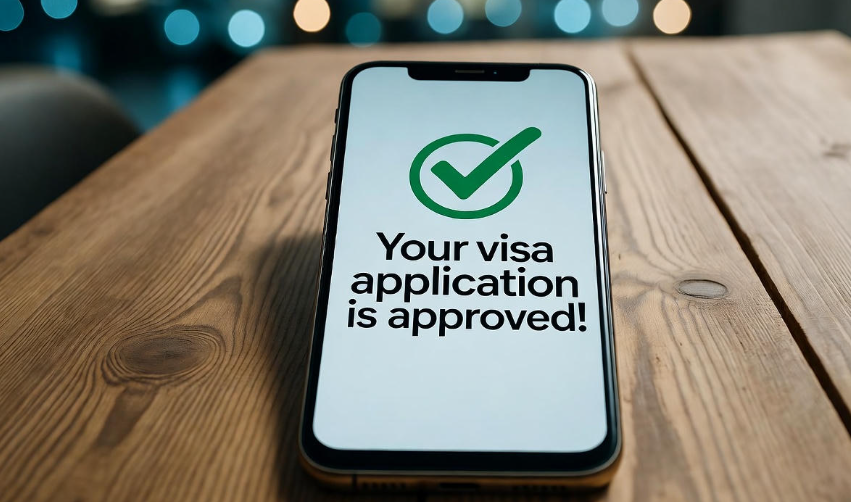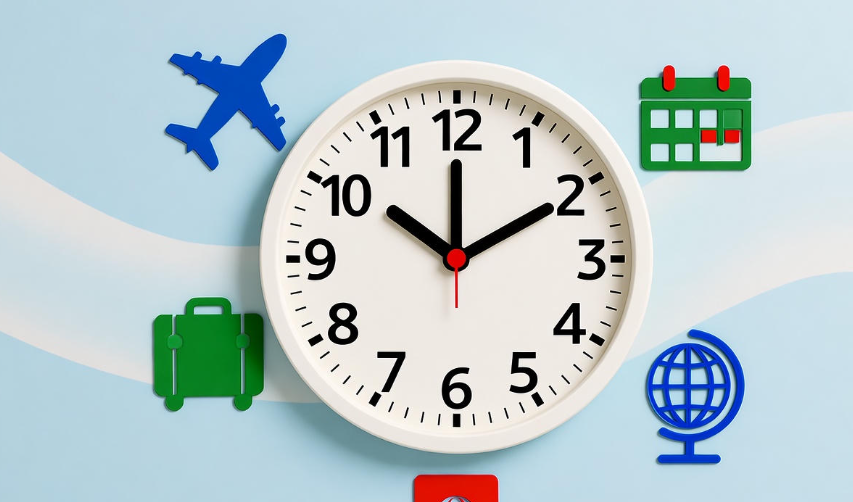Applying for a visa is exciting — it’s that final step before you can travel to your dream destination. But let’s be honest — the visa interview can make anyone nervous. A single wrong word or careless behavior can ruin all your efforts, even if your documents are perfect.
The truth is, many applicants don’t get rejected because they’re unqualified — they get rejected because of simple, avoidable mistakes during the interview. So, let’s talk about those common mistakes and how you can steer clear of them.
Not Being Prepared for Common Questions
This is one of the biggest reasons people fail their visa interviews. You might think the officer will only look at your papers — but they’re really trying to see you.
Questions like:
-
Why are you visiting this country?
-
Who will sponsor your trip?
-
Do you plan to return home after your visit?
-
What do you do for a living?
These are all basic, but your answers must sound natural and confident. If you hesitate or give vague answers, it can look like you’re hiding something.
Tip: Practice your answers at home in front of a mirror. Don’t memorize, just get comfortable explaining your reasons clearly and confidently.
Providing Inconsistent Information
Many applicants don’t realize how serious it is when their answers during the interview don’t match the information in their application form.
For example:
If your form says you’ll stay for 15 days, but during the interview you say 3 weeks — that small difference can make the officer doubt your honesty.
| Application Form | Interview Answer | Result |
|---|---|---|
| Stay: 15 days | “I plan to stay 3 weeks” | Raises suspicion |
| Sponsor: Uncle | “My brother will pay” | Inconsistency detected |
| Purpose: Tourism | “Visiting a friend” | Can lead to rejection |
So always double-check your documents and be sure your answers match them perfectly.
Dressing Too Casually or Too Formally
First impressions matter — and your clothes speak before you do. Some people come in wearing jeans and T-shirts, while others overdress like it’s a wedding.
The best approach is balance. You don’t have to wear a suit, but you should look neat, professional, and respectful.
Tip:
For men — a clean shirt and trousers are perfect.
For women — a decent dress or formal top works well.
Being Overconfident or Too Nervous
Confidence is great — overconfidence isn’t. Some applicants walk in acting like the visa officer owes them a visa. Others are so nervous they can barely speak.
Both extremes can hurt your chances.
Visa officers are trained to notice your tone, body language, and eye contact. If you seem too pushy or too scared, they may think something’s off.
✅ Do this instead:
-
Smile naturally.
-
Maintain calm eye contact.
-
Speak clearly and honestly.
-
Avoid unnecessary hand gestures.
Remember: The officer is just doing their job — not trying to scare you.
Giving Long, Complicated Answers ️
When asked a simple question, give a simple answer. Many applicants think that talking more means looking confident. Actually, it can do the opposite.
For example:
❌ “Well, I’ve always loved the culture, and my friend told me about a great museum, and I thought maybe I could…”
✅ “I’m visiting for tourism. I want to see historical sites and learn about the culture.”
Short, honest, and clear — that’s what works best.
-
️ Explore this next: Easiest Countries to Get a Work Visa Approval
Showing Lack of Ties to Your Home Country
One major reason for visa rejection is when the officer feels you won’t return to your home country after your trip.
If you sound unsure about returning, your application may be denied on the spot.
To avoid this, mention things that show your connection to your country — like:
-
Your job or business.
-
Your family.
-
Property or financial commitments.
-
Studies you plan to continue.
Example:
️ “I have a full-time job at ABC Company, and I’m taking my annual leave for this trip.”
That’s a confident and strong answer.
Not Understanding the Visa Type You Applied For
Many applicants can’t even explain what kind of visa they applied for. That’s a red flag.
If you’re applying for a tourist visa, you should talk about sightseeing or travel plans — not work.
If it’s a student visa, you should be clear about your course and study plans.
Tip: Read your visa requirements carefully before your interview. You should be able to explain what the visa is for, how long it’s valid, and why it suits your purpose.
Arguing with the Visa Officer
It sounds obvious, but people still do it. If the officer asks a tough question or rejects your visa, arguing or getting defensive won’t help.
Visa officers make their decisions based on your documents and behavior — not emotions. Stay calm and polite, even if things don’t go your way.
️ Instead of saying, “That’s not fair,” say, “I understand, thank you for your time.”
It leaves a good impression if you ever reapply later.
Forgetting or Misplacing Documents
Imagine getting to your interview and realizing you forgot your passport or bank statement. It happens more often than you’d think.
Make a checklist and review it before your appointment.
| Must-Have Documents | Optional Documents |
|---|---|
| Passport | Travel Itinerary |
| Visa Appointment Letter | Hotel Bookings |
| Bank Statement | Invitation Letter |
| Proof of Employment | Property Documents |
| ID Card | Travel Insurance |
Keep your documents neatly arranged in a file so you can hand them over quickly when asked.
Not Knowing Basic Details About Your Trip
The visa officer might ask:
-
Where will you stay?
-
How long will you be there?
-
Who will you meet?
If you don’t know the answers or fumble, it seems suspicious. It makes it look like you’re not serious or you might have other intentions.
Before your interview, memorize your travel details like dates, hotel name, and contact info.
Talking About Illegal or Irrelevant Plans
Never mention that you might work while on a tourist visa or that you want to “find opportunities” abroad.
Even if you mean it casually, it can instantly lead to rejection. Keep your focus on your approved purpose only.
Example:
❌ “I might find a small job while traveling.”
✅ “I plan to explore the country and return after my vacation.”
Using Fake Documents or Lying ⚠️
This one’s serious. If you try to fake a document or lie about your details, it can lead to a permanent ban.
Embassies cross-check your details carefully — any false information can be easily caught.
Always tell the truth. Even if something is missing, honesty is better than faking it.
Ignoring Body Language
Your body language says more than your words sometimes. Avoid fidgeting, looking away too often, or crossing your arms.
Simple tips:
-
Sit straight but relaxed.
-
Don’t play with your hands or phone.
-
Keep friendly but respectful facial expressions.
These little gestures show confidence and sincerity.
Not Listening Carefully to the Officer
Sometimes applicants answer the wrong question simply because they weren’t listening properly.
This can frustrate the officer and make you appear careless.
Take a second to think before answering — that’s totally fine. You don’t have to rush.
Depending Too Much on Agents or Others ♂️
It’s okay to get help with paperwork, but you should know everything about your application yourself.
If you rely too much on an agent and can’t explain your details, it looks suspicious.
Always review what was written on your forms. After all, you are the one facing the interview, not your agent.
Bringing Unnecessary People Along
Unless the embassy allows it (like for minors), don’t bring friends or family into your interview.
It can make you look dependent or unsure. Go in confidently on your own — that’s what officers respect.
Checking Your Phone or Acting Distracted
Using your phone or looking around during the interview is a big no. Keep your phone silent and out of sight. Give full attention to the officer — it shows discipline and respect.
Acting Desperate or Begging for Approval
Sometimes people say things like, “Please sir, I really need this visa.”
That can actually hurt your case. The visa process isn’t about sympathy — it’s about eligibility.
Stay calm and show confidence that you deserve it, not desperation that you need it.

Simple Checklist Before Your Interview ✅
| Step | What To Do |
|---|---|
| 1 | Review your visa form and documents |
| 2 | Practice answers for common questions |
| 3 | Dress neatly and arrive early |
| 4 | Stay calm and polite |
| 5 | Give short, clear answers |
| 6 | Thank the officer before leaving |
A Few Extra Human Tips
-
Drink water before your interview — dry mouth can make you sound nervous.
-
Don’t rehearse like a robot; talk naturally.
-
If you don’t understand a question, ask politely: “I’m sorry, could you please repeat that?”
-
Always smile when greeting the officer — it breaks the tension instantly.
FAQs (Frequently Asked Questions) ❓
Q1: What if I get nervous during my visa interview?
Don’t worry — it’s normal. Take a deep breath before answering. The officer understands people get nervous. Just focus on answering honestly.
Q2: How long does a visa interview usually take?
Most interviews last around 2–5 minutes. The officer already knows your documents — they just want to confirm your intentions.
Q3: Can I take my family member to the interview?
Usually no, unless it’s a family application or you’re a minor. Always check the embassy rules first.
Q4: Will smiling too much look fake?
A natural smile is perfect. Just don’t force it. Being friendly yet calm is the best balance.
Q5: What happens if I forget a document?
The officer might ask you to submit it later, but sometimes it can lead to rejection. Always double-check your file before you go.
Final Thoughts
Your visa interview is not a test of how rich or fluent you are — it’s about how honest and prepared you seem.
If you avoid these common mistakes and approach the interview with calm confidence, your chances of success go up dramatically.
Remember: every answer, gesture, and document tells a story. So, make sure yours says — “I’m genuine, responsible, and ready to travel.” ✈️




